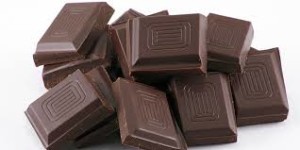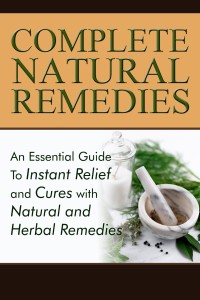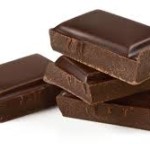 In another study using people age 25-35 researchers found that those who ate dark chocolate had the most total antioxidants in their blood one hour after eating as compared to those who ate white chocolate or milk chocolate. They also had the higher levels of epitcatechin, which is a health compound found in chocolate. Chocolate also contains phenols.
In another study using people age 25-35 researchers found that those who ate dark chocolate had the most total antioxidants in their blood one hour after eating as compared to those who ate white chocolate or milk chocolate. They also had the higher levels of epitcatechin, which is a health compound found in chocolate. Chocolate also contains phenols.
Until these past studies it was thought that tea was the only compound that contains the largest amount of these antioxidants. These antioxidants are believed to help protect the body against heart disease and cancer. The phenols are also found in high amounts in red wine.
Another positive effect of the phenols found in dark chocolate is the protection against athrosclerosis. Phenols are believed to prevent substances in the blood from oxidizing and clogging the arteries. The substances are low density lipoproteins (LDL) that creates subtle damage which eventually forms plaque that leads to athrosclerosis. (4)
And, while eating too much chocolate has a negative effect on weight, researchers believe that other negative effects have been overstated or are false. For example, chocolate hasn’t been found to cause cavities or tooth decay. In fact, it has been found to help decrease the number of bacteria in the mouth and stop decay. Scientists believe that the antibacterial agents in cocoa will offset the sugar levels. (5)
Chocolate has also not been found to cause an issue with acne. In fact, some more recent research has shown that eating chocolate or not eating doesn’t produce any changes in acne skin conditions. However, eating too much chocolate can cause other health problems, has too many calories and can lead to obesity.
References:
(1) Cleveland Clinic: Is Chocolate Good For Your Heart?
http://my.clevelandclinic.org/heart/prevention/nutrition/chocolate.aspx
(2) University of Michigan Health System: Dark chocolate
http://www.med.umich.edu/umim/food-pyramid/dark_chocolate.htm
(3) University of Tesas Health Science Center at Houston: WorkLife Wellness Tip of the Week
http://son.uth.tmc.edu/news/detail.htm?id=1577467
(4) PLOS One: Plant Derived Phenolics Inhibit the Accrual of Structurally Characterised Protein and Lipid Oxidative Modifications
http://www.plosone.org/article/info%3Adoi%2F10.1371%2Fjournal.pone.0043308
(5) Chemistry Central Journal: Cacao Sees are a “Super Fruit”: A Comparative Analysis of Various Fruit Powders and Products
http://journal.chemistrycentral.com/content/5/1/5
| Advertisement | |
 |
|


Leave a Reply